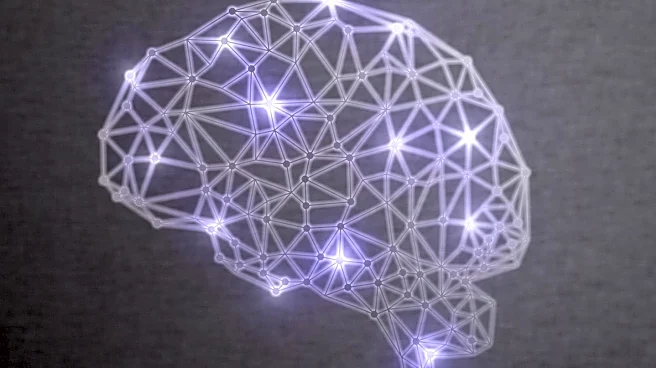What's Happening?
A 44-year-old man who has battled treatment-resistant depression (TRD) for 31 years has experienced a significant improvement in his condition following an experimental treatment known as Personalized Adaptive Cortical Electro-Stimulation (PACE). This technique, detailed in a recent preprint study, involves tailoring brain stimulation to the individual's specific brain activity. The patient, who also suffered from PTSD and panic disorder, had previously undergone numerous treatments, including 19 different medications and three rounds of electroconvulsive therapy, without lasting relief. The PACE treatment uses precision functional mapping to create a 'brainotype' for the patient, allowing for targeted stimulation of specific brain areas. This approach led to an immediate and profound improvement in the patient's mood, marking a significant breakthrough in his long-standing battle with depression.
Why It's Important?
The development of PACE represents a potential paradigm shift in the treatment of TRD, a condition where standard therapies often fail. By personalizing brain stimulation, PACE offers a more effective and sustainable treatment option for individuals with unique neurological patterns. The patient's experience highlights the potential for PACE to provide long-term relief from severe depression, a condition that affects millions of people worldwide. The success of this treatment could lead to broader adoption and further research into personalized brain stimulation techniques, offering hope to those who have exhausted conventional treatment options.
What's Next?
The promising results from this case may encourage further clinical trials and research into PACE and similar personalized brain stimulation techniques. If these methods continue to show efficacy, they could become a standard treatment for TRD, potentially transforming the landscape of mental health care. Researchers and mental health professionals will likely monitor the long-term effects of PACE on this patient and others, assessing its viability as a widespread treatment option. Additionally, the insights gained from this study could inform the development of new therapies targeting other neurological and psychiatric conditions.
Beyond the Headlines
The success of PACE underscores the importance of personalized medicine in treating complex conditions like TRD. This approach not only addresses the unique neurological patterns of each patient but also challenges the traditional one-size-fits-all model of treatment. The ethical implications of such personalized treatments, including accessibility and cost, will need to be considered as these therapies become more prevalent. Furthermore, the study of the patient's salience network provides valuable insights into the neural mechanisms underlying depression, potentially guiding future research and treatment strategies.









